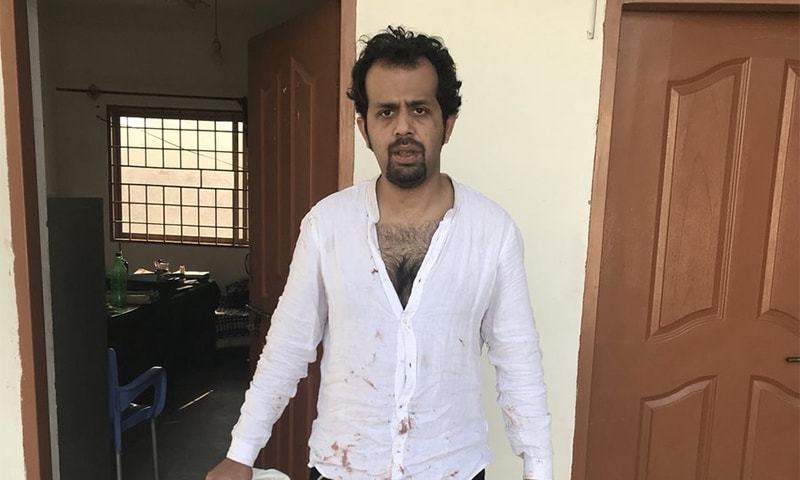
Pakistan has always been one of the toughest countries to be a journalist. However, in recent months, it appears that the Pakistani establishment seeks to “shackle” the media as never before.
According to a report in RFE/RL (Radio Free Europe/Radio Liberty): “free media is now being shackled like never before, as veteran reporters have been leaving after experiencing threats, the nation’s most popular TV station was forced off the air, and nationwide distribution of Pakistan’s oldest newspaper has been halted.”
Pakistani journalist Taha Siddiqui had to flee the country and is currently living in Paris. He “left Pakistan in January, shortly after armed men beat, threatened, and attempted to kidnap him in broad daylight as he took a taxi to the airport in the capital, Islamabad. “The army and intelligence agencies were threatening me and I suspect the people who tried to kidnap me were from the army,” says Siddiqui, speaking to RFE/RL from Paris, where he has relocated. “They do not like investigative reporting that uncovers the wrongdoings of those institutions.”
Pakistani journalist Taha Siddiqui talks to reporters after being assaulted by armed men in Islamabad on January 10. A well-known reporter, the 33-year-old’s work has appeared in The New York Times, The Guardian, and other Western media outlets. In 2014, he was awarded the Albert Londres Prix award, the French equivalent of the Pulitzer Prize, for his coverage of Pakistan. The Islamabad bureau chief for India’s World Is One News channel, Siddiqui says he was questioned and warned by the army after a 2015 article he wrote for The New York Times about torture and abuse at army-run detention centers. He followed that up with another critical story about the army confiscating land from farmers for a military-owned housing scheme. He says he was warned by intelligence officers that he was “writing against the country’s interests and we will make a fake drugs case against you.”
The distribution of Pakistan’s oldest newspaper, founded by Quaid e Azam Muhammad Ali Jinnah, Dawn, “has been disrupted across most of the country. The disruption came days after Dawn published an interview with ousted Prime Minister Nawaz Sharif, in which the former premier criticized the army and alleged it was backing militants who carried out the deadly attacks in the Indian city of Mumbai in 2008.”
Further, “On April 1, Geo TV, part of Pakistan’s largest commercial media group, Jang, was taken off the air in many parts of the country. The ban only ended a month later after talks between the military and the network’s chiefs, who reportedly pledged to make sure the network’s coverage does not cross the military’s line.”
Finally, “prominent Pakistani columnists have had articles rejected by news outlets. Pakistani journalist Syed Talat Hussain wrote on Twitter on May 28 that his regular column was rejected for its content. Pakistani writers have also seen the killing of articles that cover antigovernment protests by the Pashtun ethnic minority in which the army has been accused of forced disappearances, extrajudicial killings, and discrimination. Journalist Mosharraf Zaidi said on April 17 that his story about the Pashtun Protection Movement was rejected.”
![]()





